Fake news, utopian dreams and Santa Claus: MEPs trade barbs over Nature Restoration Law
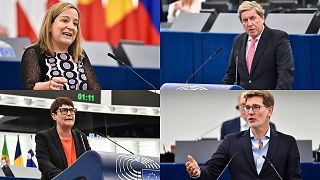
The gloves were definitely off during a debate in the European Parliament about the contentious Nature Restoration Law.
Conservatives and progressives were pitted against each other, trading a variety of accusations and reproaches that vividly exposed the profound political chasm that has effectively split the hemicycle in two.
At the core of the dispute is the Nature Restoration Law, a draft piece of legislation that aims to rehabilitate Europe's degraded ecosystems and bring back lost species. The regulation establishes legally-binding targets in seven fields of action, including farmlands, peatlands, pollinators and sea bottoms, with the ultimate goal of reversing the biodiversity loss caused by unchecked human activity and climate change.
But the law, as designed by the European Commission, has become the target of enormous criticism by right-wing parties, particularly by the European People's Party (EPP), the parliament's largest group, which has for weeks led a relentless opposition campaign to bring down the legislation in its entirety.
The Nature Restoration Law faces a make-or-break moment on Wednesday when the hemicycle is due to take a vote on the full text, following the negative assessments made by three different committees.
Ahead of the crucial occasion, MEPs had a chance to discuss face-to-face the content of the proposed legislation. But Tuesday's debate quickly turned into a dizzying succession of political recriminations, finger-pointing, ridicule and interruptions that stretched for over two hours and a half.
Conservative groups, with the EPP at the front, attacked the Nature Restoration Law, saying its obligations to improve the health of agricultural lands would threaten the livelihoods of European farmers, disrupt supply chains, decrease food production and push prices up for consumers – claims that have been widely contested by NGOs, climate scientists, the renewable industry and the private sector.
"The proposal by the (European) Commission goes directly in the wrong direction," said Christine Schneider, an EPP member from Germany.
"Protecting biodiversity can only go hand in hand with the population, not by forcing rules on the foresters, the farmers, and making them responsible for the disappearance of biodiversity, not by removing arable farmland and endangering food production, not by pitting the environment against agriculture."
Eurosceptic lawmakers went even further, raising the prospect of expropriated private property, growing unemployment and abandoned rural areas, on top of their customary allegations of democratic blackmail and violation of national sovereignty.
"While we face an imminent food crisis, you chase utopian pipe dreams. You're sacrificing our farmers on the altar of your ecological ideology," said Aurélia Beigneux, a French MEP with the far-right Identity and Democracy (ID) group.
Left-wing parties took turns defending the Nature Restoration Law, portraying it as an essential piece to ensure the long-term viability of European soils and build buffers against the most damaging effects of the climate crisis.
Progressives harshly denounced the EPP for its antagonistic behaviour and its incessant social media campaign, which last week took a surprising turn with a bizarre-looking tweet that claimed the law would "kick Santa out of his house" by turning the "entire city of Rovaniemi into a forest."
"EPP, what happened? You walked away from the negotiation table. You tweet about Santa Claus. It's all very funny. But let's get back to reality. Let's take this vote and it's finally time you support nature restoration," said Bas Eickhout, from the Greens.
"The attempt led by the European People's Party to reject the Nature Restoration Law sends a devastating message about the viability of the Green Deal. The right has made the environmental agenda the ideal course for its electoral dispute with the far right," said Iratxe García Pérez, chair of the Socialists & Democrats (S&D).
Caught in the middle of the fire was Renew Europe, the liberal group, whose internal divisions over the proposed law have hindered a common position.
If, as expected, the vast majority of conservative-learning lawmakers vote on Wednesday against the legislation, a handful of votes from Renew Europe would be enough to tilt the balance and seal its fate.
"We must not allow this far-right populism, these fake news and lies that you have been propagating for a year and that you have again brazenly repeated in this house," said Pascal Canfin, one of Renew Europe's most outspoken advocates for the law.
But his Dutch colleague, Jan Huitema, expressed a diametrically opposed view.
"The proposal, on paper, sounds fantastic but in reality, it would slow things down unnecessarily," Huitema said. "Of all the legislative proposals I've looked at during my time in parliament, this is the one that will have the biggest impact on people back home. This is a proposal that we cannot accept."
At the of the debate, Virginijus Sinkevičius, the European Commissioner for the environment, took the floor and refuted several "misconceptions" and "misunderstandings" voiced by MEPs, whom he name-checked.
Sinkevičius said time was "running out" to reverse the decline of Europe's biodiversity and warned the bloc's executive, as previously announced, would not come up with a brand new text if the one currently on the table falls apart.
"You might be surprised to hear this, but to me, this debate has shown that an agreement is possible," Sinkevičius said. "A compromise is possible and within reach. The divergences are not as big as to justify rejection."
EFA/GREEN MEP CALLS TO VOTE IN FAVOUR OF THE NATURE RESTORATION LAW
EFA MEP François Alfonsi, intervened in plenary today to defend the importance of the nature restoration law. This proposal aims to restore ecosystems, habitats and species across the EU’s land and sea areas to enable the long-term recovery of biodiversity, contribute to climate mitigation and adaptation objectives as well as comply with international commitments.
The law, which has been classified as the cornerstone of the EU Green Deal, has suffered a series of offensives organized by EPP leadership, that tried to influence the elaboration of the draft report in the ENVI Committee as well as pressure MEPs from their own party to vote against the law.
This law is crucial to improve nature in Europe. This is key to the fight against climate change, contributes to drought, fire and flood prevention and is essential for long-term food security as well as the livelihoods of farmers.
In that vein, the Corsican MEP pointed out some of the consequences of climate change in ecosystems across Europe.
“Posidonia meadows in the Mediterranean are an exceptional ecological heritage, with the highest CO2 capture capacity in the world. But this heritage continues to decline under the pressure of human economic activity.”
François Alfonsi EFA MEP said:
“I'd like to stress the consequences of global warming in the Mediterranean, where I live. Climatologists have said that this is where the impact will be the worst.”
“Shouldn't we put an end to this as a matter of urgency? Implementing rigorous nature restoration legislation as quickly as possible - that's what we can do with this law.”
“Without this law, the destruction will continue. It would be irresponsible to reject it tomorrow.” He concluded.
The EU nature restoration law is meant to enhance food security, not undermine it

Like all food companies, Danone and Nestlé are heavily reliant on nature and its well-being to procure our agricultural raw materials. When nature suffers, our supply chain is strained, Facundo Etchebehere and Bart Vandewaetere write.
Nature restoration and food security are not opposites — in fact, they are interdependent.
Globally, 26% of the total damage and losses from climate-related disasters affect the agricultural sector directly, according to a study by the World Resources Institute.
This is why, as companies whose bottom lines depend on nature, we are deeply concerned that the EU’s Nature Restoration Law was rejected by the European Parliament's ENVI committee last month.

Like all food companies, Danone and Nestlé are heavily reliant on nature and its well-being to procure our agricultural raw materials. When nature suffers, our supply chain is strained, Facundo Etchebehere and Bart Vandewaetere write.
Nature restoration and food security are not opposites — in fact, they are interdependent.
Globally, 26% of the total damage and losses from climate-related disasters affect the agricultural sector directly, according to a study by the World Resources Institute.
This is why, as companies whose bottom lines depend on nature, we are deeply concerned that the EU’s Nature Restoration Law was rejected by the European Parliament's ENVI committee last month.
A significant step in the right direction
The European Commission’s proposed nature Restoration Law would be a significant step in the right direction.
This law is a comprehensive strategy aiming to restore degraded ecosystems across the continent, with specific targets set for restoring habitats that are particularly suited for carbon capture and enhancing resilience to natural disasters.
For companies like Nestlé and Danone, and the farmers who supply us, this legislation could mean a shift towards more sustainable practices that contribute to ecosystem restoration and climate change mitigation, thereby ensuring the sustainability and resilience of supply chains.
And the Nature Restoration Law gives us a critical opportunity for the entire food production sector to move in this direction, farmers and corporations alike.
Farmers and food and drinks producers are at the frontline of the climate and biodiversity crisis.
Milk production, for instance, is already feeling the severe impact of climate change: dairy cows have difficulties with extreme heat, and higher temperatures often lead to lower yields.
Climate events and heat also impact the grass and crops on which cows depend: in 2022, in Italy, water shortages and drought led to a drop of as much as 45% in corn and animal feed yields.
Dairy farmers in France faced similar challenges maintaining milk production as temperatures soared and pastures were scorched.
The European Commission’s proposed nature Restoration Law would be a significant step in the right direction.
This law is a comprehensive strategy aiming to restore degraded ecosystems across the continent, with specific targets set for restoring habitats that are particularly suited for carbon capture and enhancing resilience to natural disasters.
For companies like Nestlé and Danone, and the farmers who supply us, this legislation could mean a shift towards more sustainable practices that contribute to ecosystem restoration and climate change mitigation, thereby ensuring the sustainability and resilience of supply chains.
And the Nature Restoration Law gives us a critical opportunity for the entire food production sector to move in this direction, farmers and corporations alike.
Farmers and food and drinks producers are at the frontline of the climate and biodiversity crisis.
Milk production, for instance, is already feeling the severe impact of climate change: dairy cows have difficulties with extreme heat, and higher temperatures often lead to lower yields.
Climate events and heat also impact the grass and crops on which cows depend: in 2022, in Italy, water shortages and drought led to a drop of as much as 45% in corn and animal feed yields.
Dairy farmers in France faced similar challenges maintaining milk production as temperatures soared and pastures were scorched.
Europe is not impervious to food price hike shocks
Like all food companies, we are heavily reliant on nature and its well-being for the procurement of our agricultural raw materials. When nature suffers, our supply chain is strained.
In June last year, wheat and maize prices had shot up by 42% and 47%, respectively, compared to January 2021, partly due to weather shocks related to climate change and a heatwave in India, which caused a drop in wheat yields, leading to an export ban by the world’s second-largest producer.
While prices have returned to normal levels since, the sharp increases were a clear sign of how unstable our world is now.
Europe is not protected from similar shocks: a study by the University of Edinburgh showed that Southern Europe could see a drop of more than 50% in production yields in higher warming climate scenarios.
The droughts faced by Spain are showing us what that might look like.
Like all food companies, we are heavily reliant on nature and its well-being for the procurement of our agricultural raw materials. When nature suffers, our supply chain is strained.
In June last year, wheat and maize prices had shot up by 42% and 47%, respectively, compared to January 2021, partly due to weather shocks related to climate change and a heatwave in India, which caused a drop in wheat yields, leading to an export ban by the world’s second-largest producer.
While prices have returned to normal levels since, the sharp increases were a clear sign of how unstable our world is now.
Europe is not protected from similar shocks: a study by the University of Edinburgh showed that Southern Europe could see a drop of more than 50% in production yields in higher warming climate scenarios.
The droughts faced by Spain are showing us what that might look like.
If you're worried about the farmers, then you know regenerative agriculture is the answer
These are collective challenges we are facing, and regenerative agriculture offers a practical solution.
By incorporating practices like intercropping, crop rotations, hedgerows, and reduced pesticide use, we can restore soil health, increase biodiversity, and decrease greenhouse gas emissions.
These practices benefit not only nature and our businesses but also farmers — as shown by an analysis of the economics of German farms where regenerative agriculture resulted in higher profits in the medium and long term.
This brings us back to the urgent need for the European Parliament to approve the Nature Restoration Law and the need to emphasise that this law is not just for the environment or the businesses that depend on it, but crucially, for the farmers whose livelihoods are at stake.
The question we should be focusing on is not if we fix objectives to restore nature and mitigate climate change, but rather how we can join forces across public and private sectors to achieve them.
These are collective challenges we are facing, and regenerative agriculture offers a practical solution.
By incorporating practices like intercropping, crop rotations, hedgerows, and reduced pesticide use, we can restore soil health, increase biodiversity, and decrease greenhouse gas emissions.
These practices benefit not only nature and our businesses but also farmers — as shown by an analysis of the economics of German farms where regenerative agriculture resulted in higher profits in the medium and long term.
This brings us back to the urgent need for the European Parliament to approve the Nature Restoration Law and the need to emphasise that this law is not just for the environment or the businesses that depend on it, but crucially, for the farmers whose livelihoods are at stake.
The question we should be focusing on is not if we fix objectives to restore nature and mitigate climate change, but rather how we can join forces across public and private sectors to achieve them.
We can't keep closing our eyes to the truth
And this means focusing on transition finance, which will need to be further developed in the next stage of the discussions.
An analysis from the European Investment Bank estimated that, in 2020, the financing gap for agriculture was between €19.8 and €46.6 billion, while the gap for the agri-food industry was at more than €12.8bn.
We need to work hand-in-hand to develop transition finance solutions that give farmers the support they need to lead on regenerative agriculture.
The facts are clear: nature restoration does not undermine food security; rather, it enhances it.
Rather than allowing the discussion to be polarised, we must join forces to build a future that benefits all — farmers, businesses, consumers, and our planet.
We can start now with the Nature Restoration Law, or keep pretending that the risks of a depleted planet are not already apparent.
Facundo Etchebehere is Danone’s Senior Vice President of Sustainability Strategy & Partnerships, and Bart Vandewaetere is Vice President of Environmental, Social and Governance Engagement for Europe at Nestlé.
And this means focusing on transition finance, which will need to be further developed in the next stage of the discussions.
An analysis from the European Investment Bank estimated that, in 2020, the financing gap for agriculture was between €19.8 and €46.6 billion, while the gap for the agri-food industry was at more than €12.8bn.
We need to work hand-in-hand to develop transition finance solutions that give farmers the support they need to lead on regenerative agriculture.
The facts are clear: nature restoration does not undermine food security; rather, it enhances it.
Rather than allowing the discussion to be polarised, we must join forces to build a future that benefits all — farmers, businesses, consumers, and our planet.
We can start now with the Nature Restoration Law, or keep pretending that the risks of a depleted planet are not already apparent.
Facundo Etchebehere is Danone’s Senior Vice President of Sustainability Strategy & Partnerships, and Bart Vandewaetere is Vice President of Environmental, Social and Governance Engagement for Europe at Nestlé.
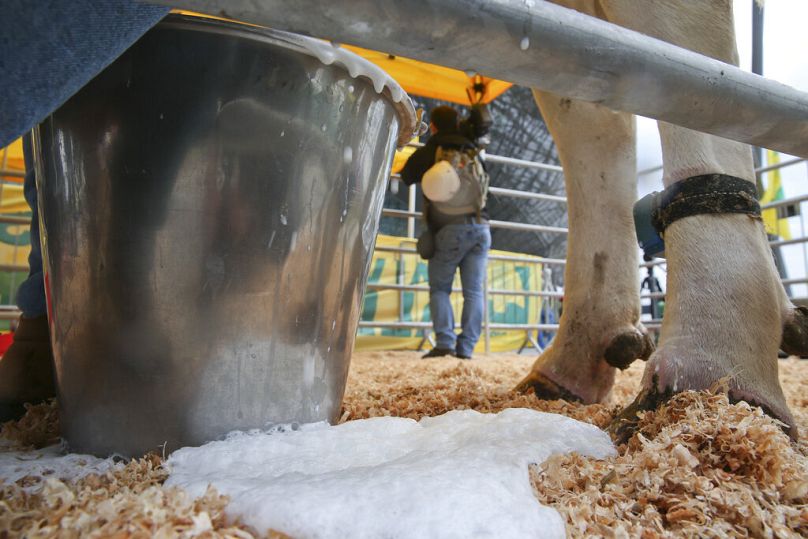
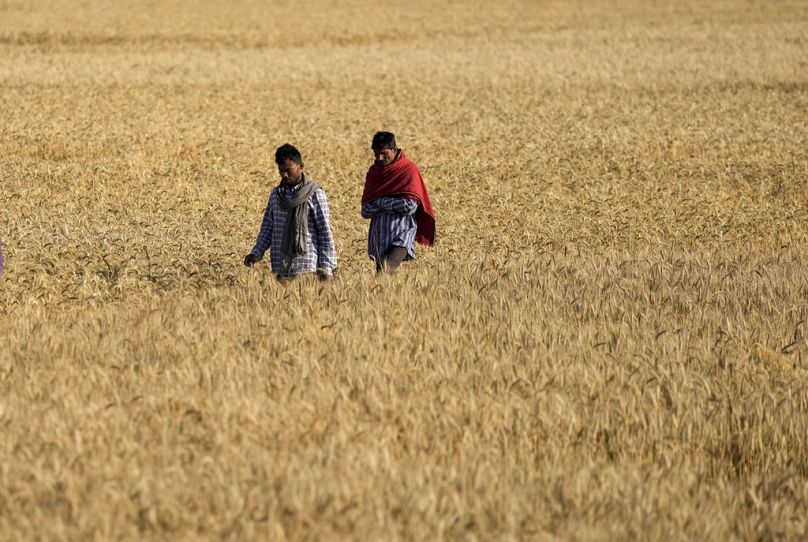
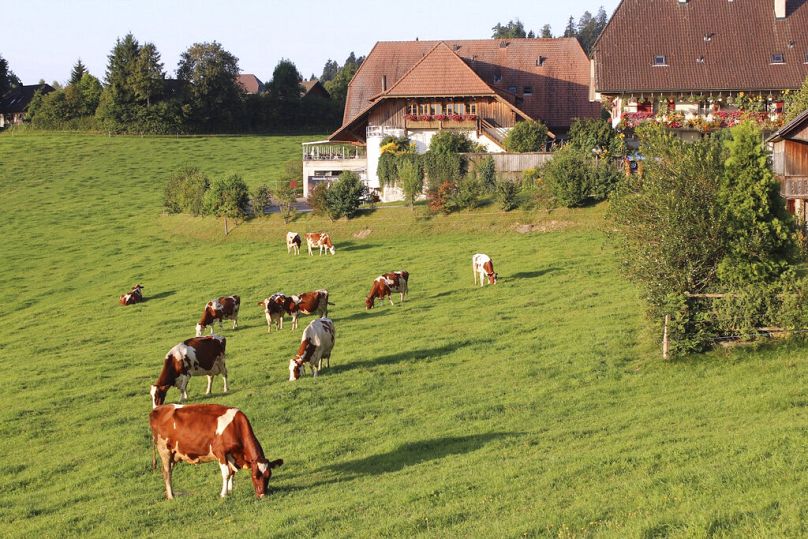
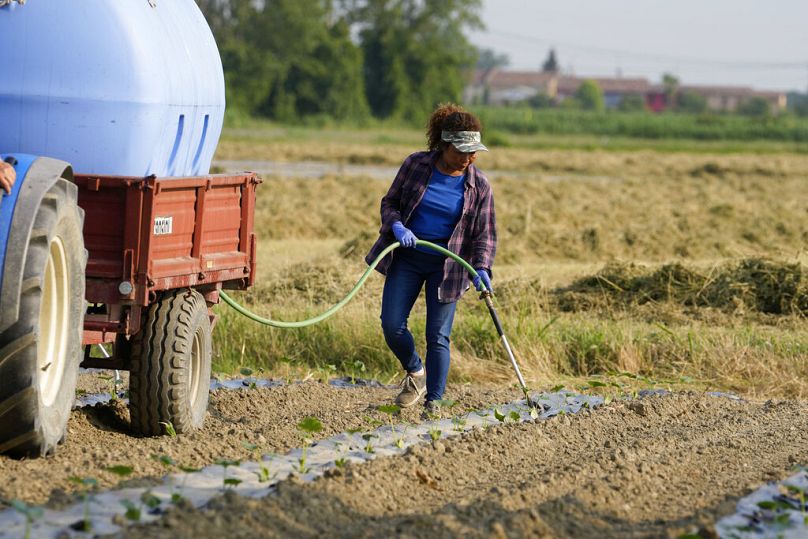

No comments:
Post a Comment